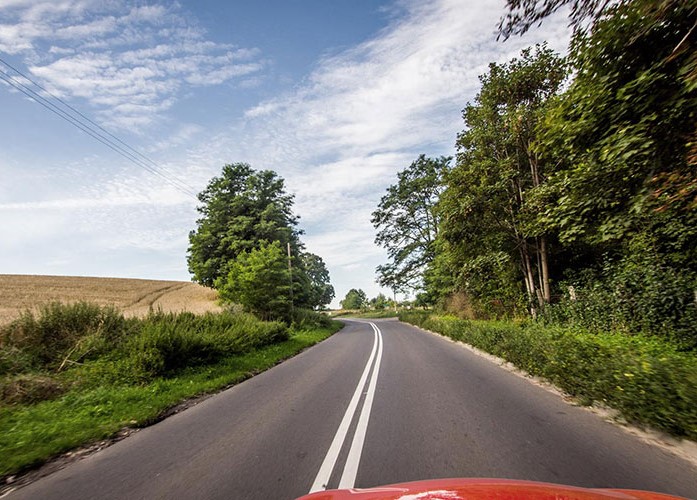
*با سلام و درود به مهمانان عزیز و کاربران گرامی وبلاگ#مهرزاد، ضمن عرض ادب و احترام به شما، این صفحه به منظور اطلاع رسانی و برای نشر آگاهی و غنی سازی می باشد، خواهشمند است، هر گونه پیشنهاد یا انتقاد را به مدیر سایت بفرمایید.
How would you define the, good society?x
It's a question Joseph Stiglitz, winner of the Nobel Memorial Prize in Economic Sciences, is asking everyone, in this fraught moment in history.x
book, The Road to Freedom: Economics and the Good Society, takes a deep look at the question From one of the world’s leading economists, a compelling new vision of personal and economic freedom.x
In The Road to Freedom, Nobel prize winner Joseph E. Stiglitz dissects America’s current economic system and the political ideology that created it, laying bare their twinned failure.x
Free and unfettered markets have only succeeded in delivering a series of crises, the financial crisis, the opioid crisis, and the crisis of inequality.x
While a small portion of the population has amassed considerable wealth, wages for most people have stagnated.x
Free and unfettered markets have exploited consumers, workers, and the environment alike.x
Such failures have fed populist movements that believe being free means abandoning any obligations citizens have to one another.x
As they grow in strength, these movements now pose a real threat to true economic and political freedom.x
As an economic advisor to presidents and as chief economist at the World Bank, Stiglitz has witnessed these profound changes
firsthand.x
As he argues, the failures follow from the elites’ unshakeable
dedication to the neoliberal experiment.x
Explicitly taking on giants such as Friedrich Hayek and Milton Friedman, Stiglitz exposes accepted ideas about our political and economic life for what they are:x
twisted visions that tear at the social fabric while they enrich the very few.x
The Road to Freedom breaks new ground, showing how economics, including recent advances in which Stiglitz has played such an important rolereframes how to think about freedom and the role of the state in a twenty first century society.x
Drawing on the work of contemporary philosophers, Stiglitz explains a deeper, more humane way to assess freedoms, one that considers with care what to do when one person’s freedom conflicts with another’s.x
We must reimagine our existing economic and legal systems and embrace forms of collective action, including regulation and investment, if we are to create an innovative society in which everyone can flourish.x
The task could not be more urgent, and Stiglitz’s latest book is essential reading for those committed to the American ideal of an economic and political system that delivers well being, opportunity, and meaningful freedoms for all.x
Joseph Stiglitz:x
The challenges to attacks on democracy and freedom have never been greater in my lifetime.x
My ultimate objective in this book is to understand what kind of an economic, political, and social system is most likely to enhance the freedoms of most citizens, including by appropriately drawing the right boundaries on freedoms, constructing the right rules and regulations, and making the right trade-offs, ...x
The answer I provide runs counter to more than a century of writings by conservatives.x
It is not the minimalist state advocated by libertarians, or even the highly constricted state envisioned by neoliberalism.x
Rather, the answer is something along the lines of a rejuvenated European social democracy or a new American Progressive Capitalism, a twenty first century version of social democracy or of the Scandinavian welfare state ...x
he warned, As our economic system is seen to fail for most citizens, and as our political system seems to be captured by moneyed interests, confidence in our democracy and in our market economy will erode along with our global influence,…x
As the reality sinks in that we are no longer a country of opportunity and that even our long vaunted rule of law and system of justice have been compromised, even our sense of national identity may be put into jeopardy.x
We may not know it, but when we complain about a new policy, or tax settings, or housing, or our health and education systems, or the rate of population growth, we're often engaging in political philosophy.x
Why? Because if we're arguing that some policy isn't good, we must have an idea, whether conscious or unconscious, of what a better policy would be, and that means we're comparing it to some ideal we have in mind.x
For example, what's your view on gun ownership?x
We are a nation born from the conviction that people must be free. But since the middle of the last century, that idea has been co opted. Forces on the political Right have justified exploitation by cloaking it in the rhetoric of freedom, leading to pharmaceutical companies freely overcharging for medication, a Big Tech free from oversight, politicians free to incite rebellion, corporations free to pollute, and more.x
How did we get here? Whose freedom are we and should we be thinking about?x
Today, he has returned to that theme in his new book, but from a different angle.x
He takes as his starting point the extreme social, political and environmental problems besieging some societies in this age of polycrisis, and wonders how Americans and citizens of other countries, can reverse the destructive growth in wealth inequality and rebuild a better and healthier society in coming decades.x
In 2011, 13 years ago, he explained how the severe growth in wealth inequality, if left unchecked, would keep feeding on itself and drive further inequality and division in politics.x
The next year, in 2012, he published The Price of Inequality: How Today's Divided Society Endangers Our Future, which became a
best seller, to warn of what was coming.x
لطفا برای جلوگیری از قطع درختان، به جز موارد بسیار ضروری، ازچاپ روی کاغذ، خودداری فرمایید.
غنی سازی برای کار آفرینی و مدیریت با استفاده از فناوری اطلاعات و ارتباطات
